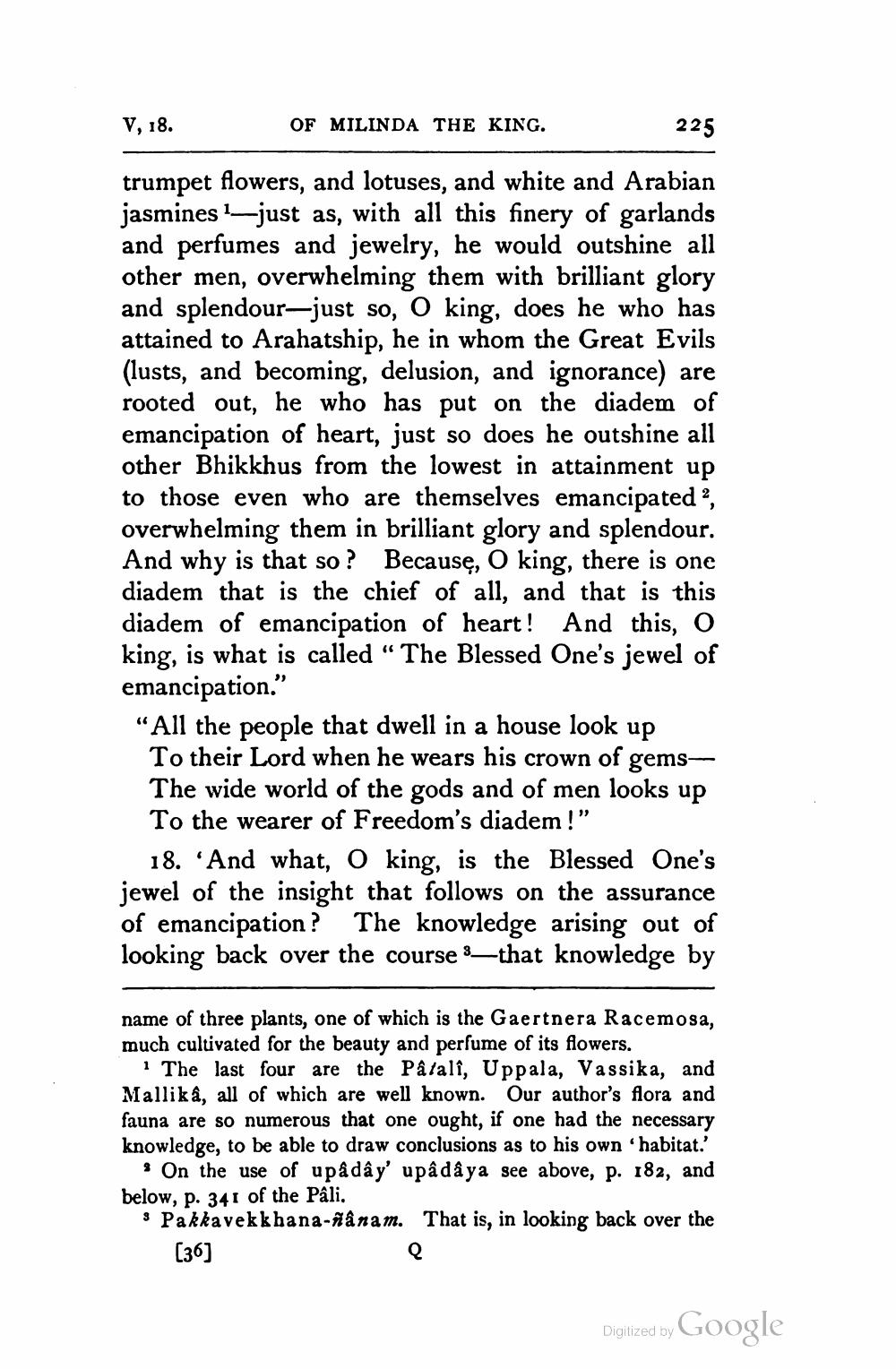________________
V, 18.
OF MILINDA THE KING.
225
trumpet flowers, and lotuses, and white and Arabian jasmines just as, with all this finery of garlands and perfumes and jewelry, he would outshine all other men, overwhelming them with brilliant glory and splendour-just so, O king, does he who has attained to Arahatship, he in whom the Great Evils (lusts, and becoming, delusion, and ignorance) are rooted out, he who has put on the diadem of emancipation of heart, just so does he outshine all other Bhikkhus from the lowest in attainment up to those even who are themselves emancipated 2, overwhelming them in brilliant glory and splendour. And why is that so? Because, O king, there is one diadem that is the chief of all, and that is this diadem of emancipation of heart! And this, O king, is what is called "The Blessed One's jewel of emancipation."
"All the people that dwell in a house look up To their Lord when he wears his crown of gemsThe wide world of the gods and of men looks up To the wearer of Freedom's diadem!"
18. And what, O king, is the Blessed One's jewel of the insight that follows on the assurance of emancipation? The knowledge arising out of looking back over the course that knowledge by
name of three plants, one of which is the Gaertnera Racemosa, much cultivated for the beauty and perfume of its flowers.
The last four are the Pâtalî, Uppala, Vassika, and Mallika, all of which are well known. Our author's flora and fauna are so numerous that one ought, if one had the necessary knowledge, to be able to draw conclusions as to his own 'habitat.'
On the use of upâdây' upâdâya see above, p. 182, and below, p. 341 of the Pâli.
3 Pakkavekkhana-ñânam. That is, in looking back over the
[36]
Q
Digitized by
Google




